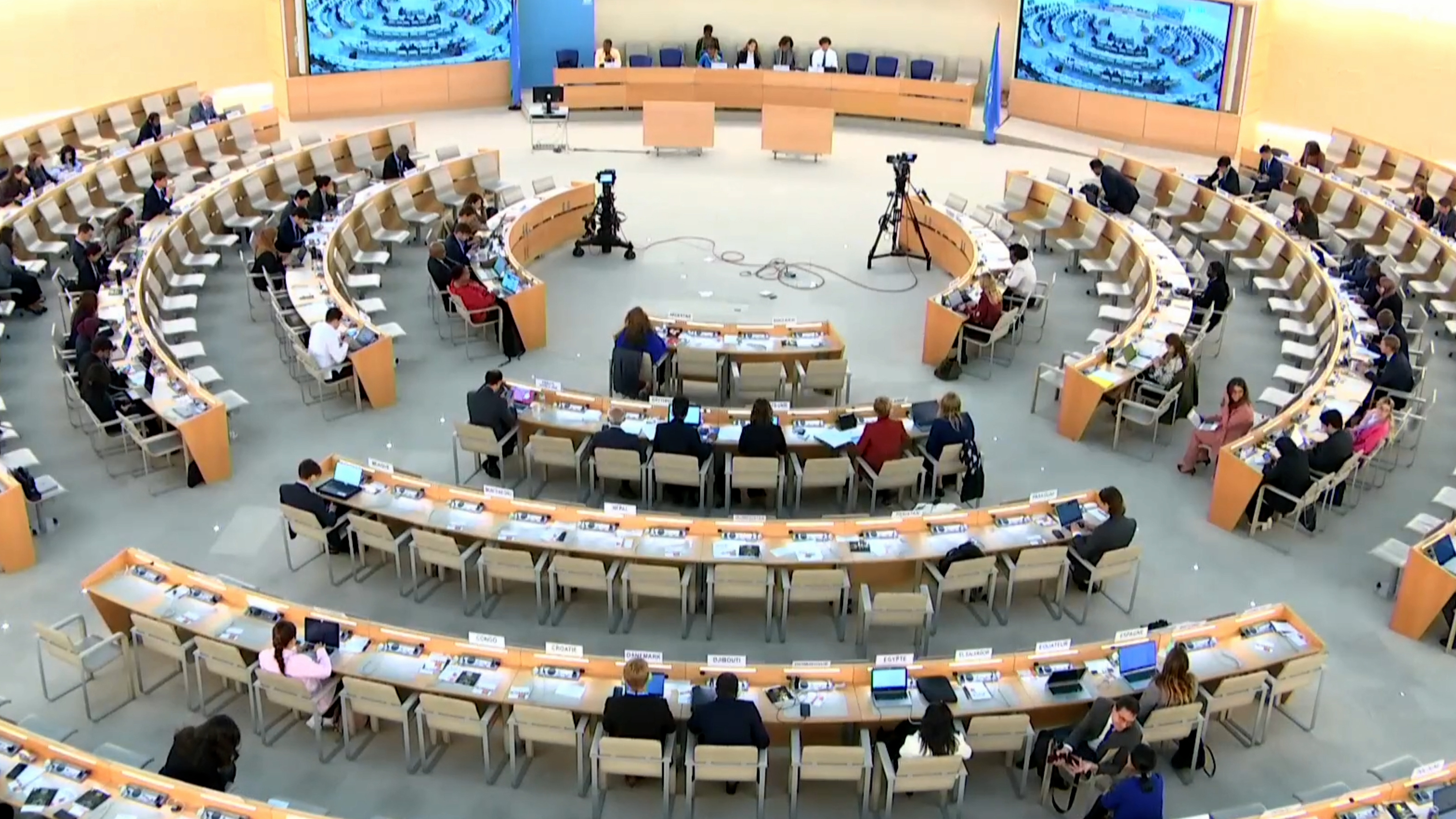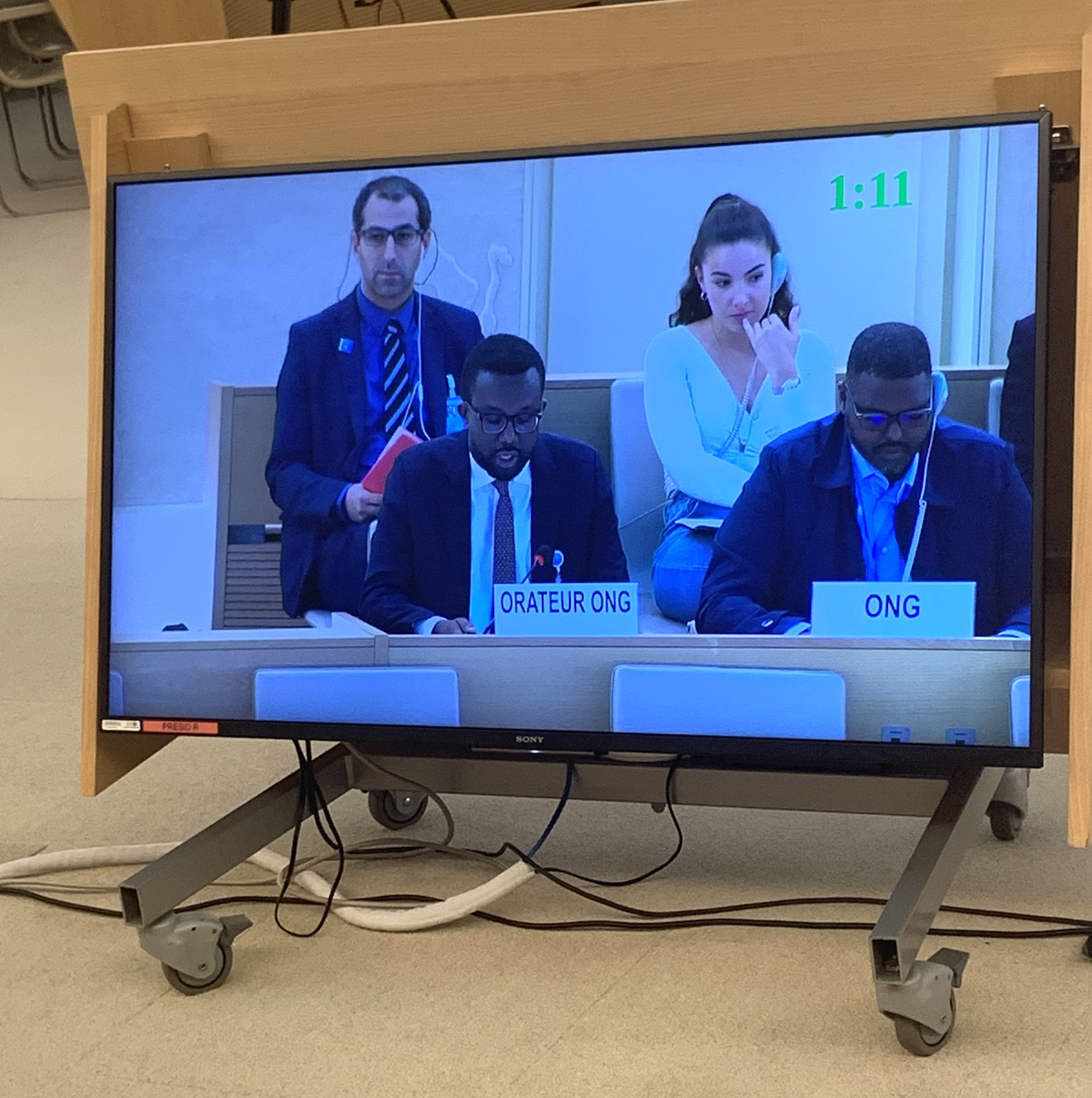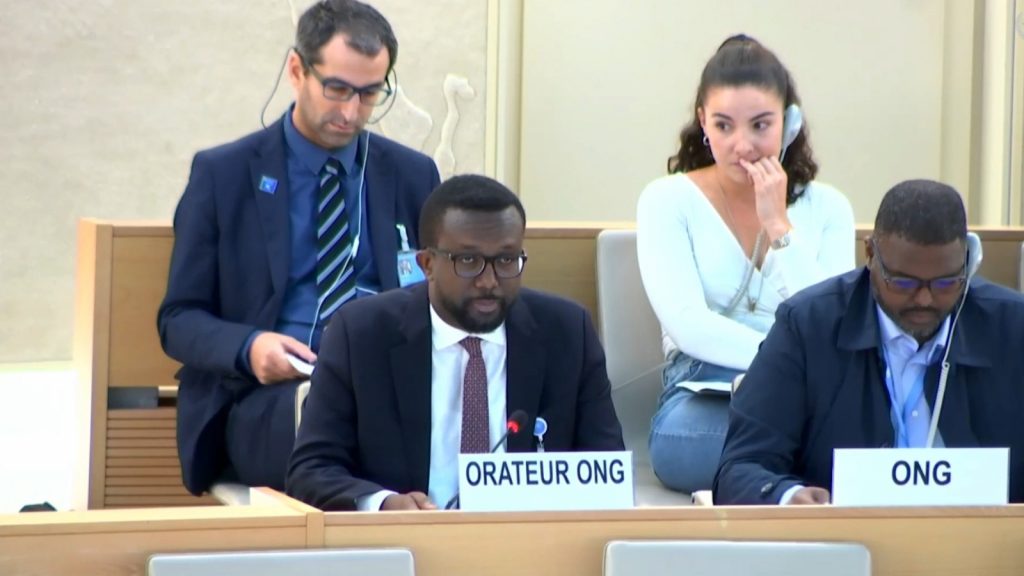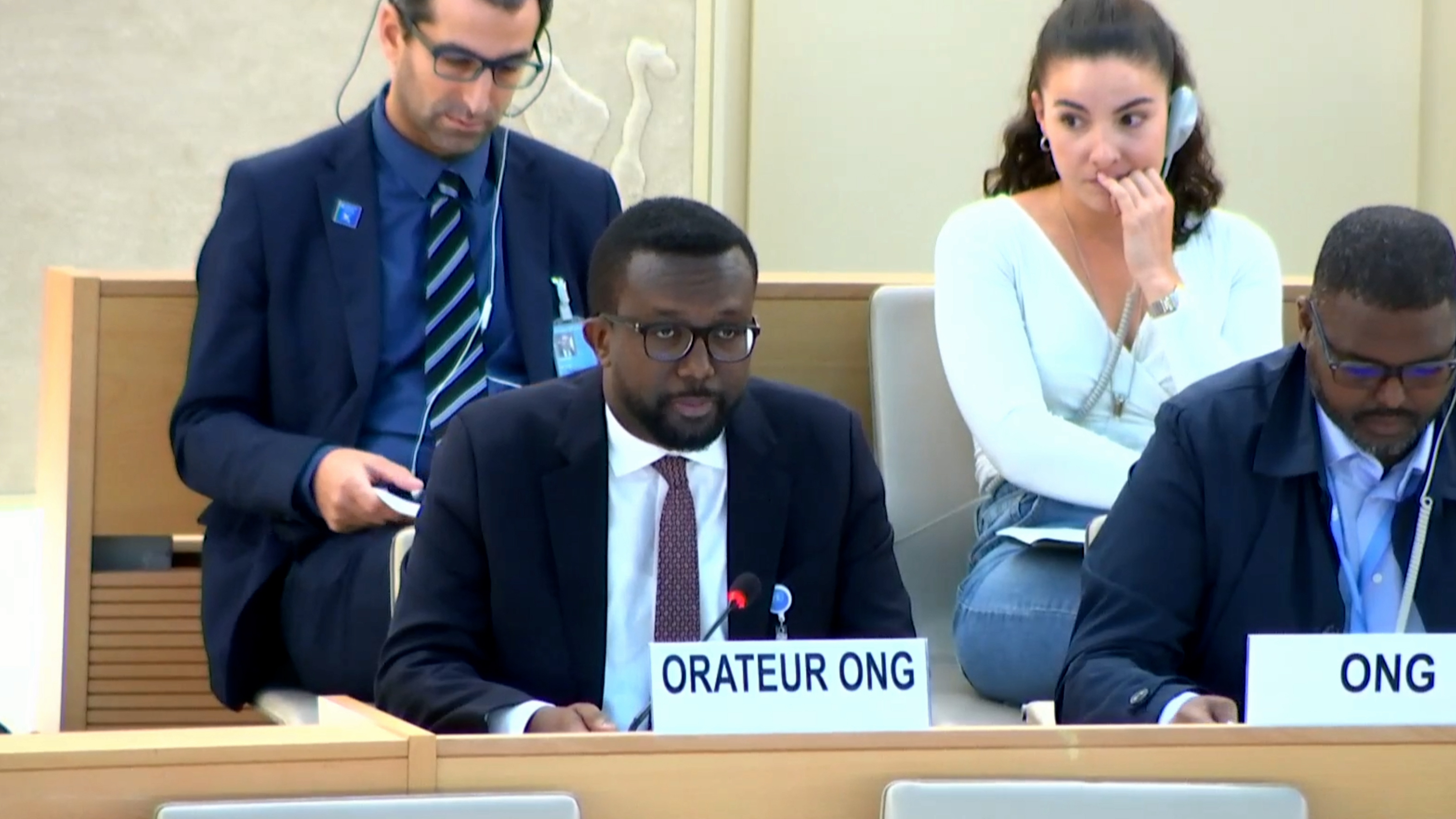54th Session of the UN Human Rights Council
ITEM 10: Interactive Dialogue with the UN Independent Expert on the situation of human rights in Somalia
DELIVERED BY: Omar Faruk Osman, Secretary General of the National Union of Somali Journalists (NUSOJ) on 10 October 2023
NUSOJ holds consultative status with the UN Economic and Social Council (ECOSOC)
Thank you, Madame Vice President,
The National Union of Somali Journalists (NUSOJ) would like to express its sincere gratitude to Ms. Isha Dyfan, the UN Independent Expert on the situation of human rights in Somalia, for her comprehensive report. Today we focus on the concerning frequency of attacks on journalists and the restrictions on freedom of expression in Somalia.
We commend the Somali government for their support in renewing the mandate of the Independent Expert through a resolution that addresses crucial human rights issues requiring the attention of the UN Human Rights Council. We urge all council members to reach a consensus and adopt the resolution.

Since our last address to this council, we regretfully inform you that two journalists have been lost and 95 incidents have been documented, reflecting the increasing threats faced by journalists and news media organizations in almost every region of Somalia. Furthermore, this year has seen a troubling rise in sophisticated threats and intimidation, leading to widespread self-censorship. These challenges add to the long-standing issues surrounding media freedom, including persistent impunity, outdated laws from the 1964 penal code, and unacceptable working conditions that instil fear and uncertainty.

The growing incidents of gender-based violence targeting female journalists are deeply concerning, as they not only violate women's rights but also highlight the urgent need for tangible action. It is troubling to witness Somalia's lack of adequate legal mechanisms to effectively address and combat these crimes. This underscores the pressing importance of enacting a comprehensive sexual offenses bill that aligns with international human rights standards. By doing so, Somalia can fulfil its global human rights obligations and demonstrate a strong commitment to protecting the rights and well-being of women and girls. Neglecting to provide sufficient protection not only undermines the fundamental rights of women and girls but also contradicts Somalia's international obligations.

We call upon the UN Human Rights Council to take swift and decisive action to tackle the challenges faced in Somalia. Somalia needs to prioritize the protection of journalists and the strengthening of freedom of expression. It is essential to progressively reform the penal code, combat impunity, and enact legislation specifically addressing sexual and gender-based violence in full accordance with international human rights standards.
Additionally, Somalia needs to foster a resilient media environment that ensures effective implementation of these measures. These actions are essential to advance freedom of expression from a mere principle into a tangible reality, and to effectively safeguard the rights of women.
Thank you.
ENDS

